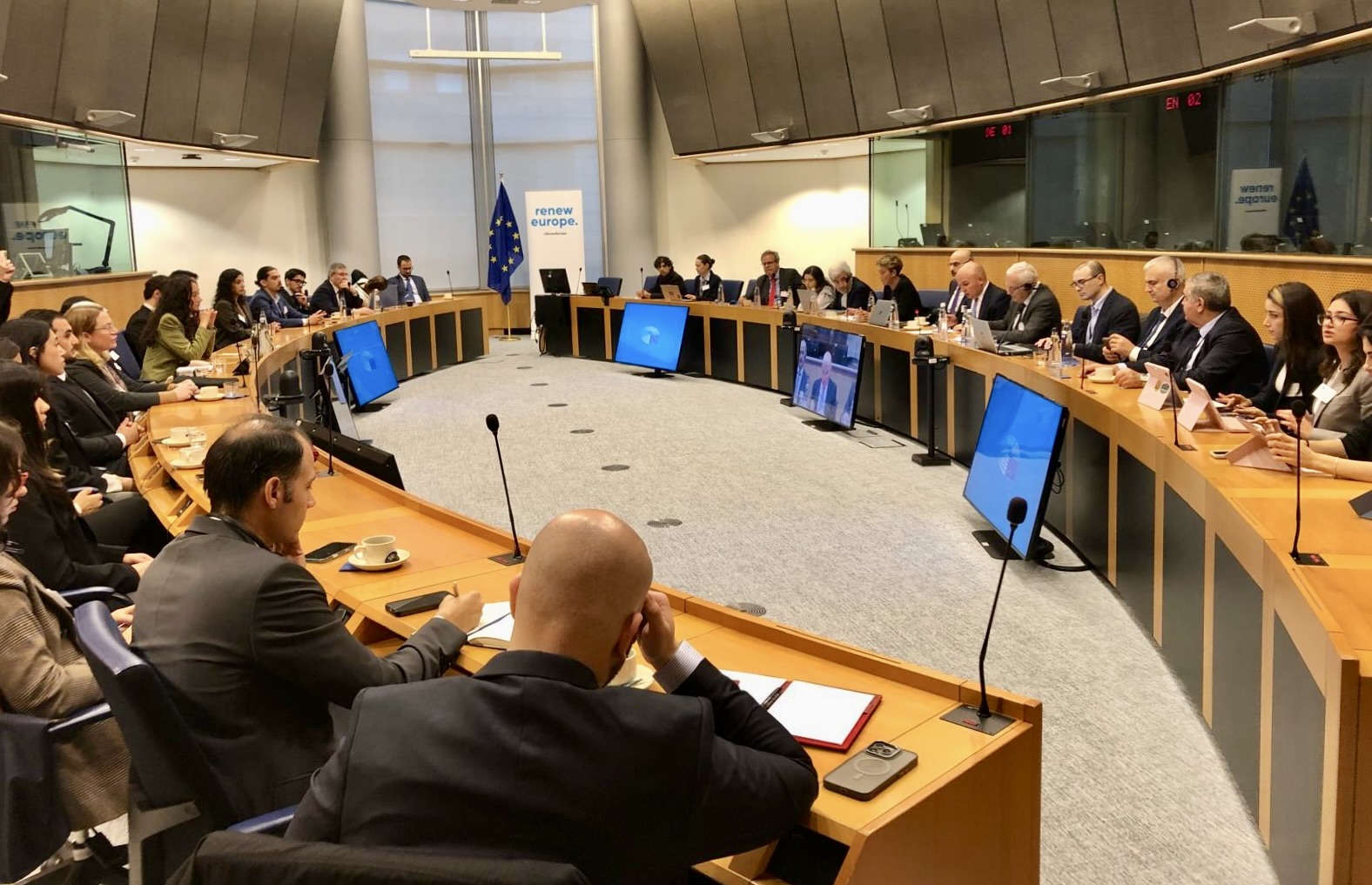
VATAN representatives visit FUEN Brussels and raise awareness in the European Parliament
02.10.2025On 1 October, representatives of the Public Organisation of Meskhetian Turks “VATAN”, a FUEN member organisation and member of the Working Group of Turkic Minorities/Communities (TAG), visited the FUEN office in Brussels. The talks focused on the long-standing challenges of the Meskhetian Turks, who were deported from Georgia in 1944 by order of Soviet leader Joseph Stalin and have since lived dispersed across nine countries on three continents. Despite international recognition of their right to return, they continue to face obstacles in resettling in their ancestral homeland.

The visit followed a conference in the European Parliament on 30 September entitled “Georgia’s Euro-Integration: The Meskhetian Turks Question as a Benchmark for EU Standards Compliance”. The event was hosted by MEP Ilhan Kyuchyuk (Renew Europe, Bulgaria) and organised by VATAN as part of their awareness-raising activities in Brussels. It highlighted that, although Georgia adopted a repatriation law in 2007, the vast majority of applications submitted by Meskhetian Turks have been rejected, leaving the community without a practical path to return.
At the European Parliament, VATAN representatives Fuad Pepinov and Ansar Usmanov underlined that the law functions in practice as a “return prevention law”. They stressed that supranational organisations such as the United Nations, the Council of Europe and the OSCE have repeatedly confirmed Georgia’s shortcomings, yet their recommendations have largely been ignored. VATAN therefore called on Georgia to take the issue seriously within its EU accession process and to recognise the Meskhetian Turks as victims whose rights must be restored.

According to the FUEN experts at the event, EU accession instruments, together with the pre-accession assistance that Georgia already receives, could serve as effective tools to strengthen minority rights. To achieve tangible progress, political will, a functioning legal framework and a roadmap supported by EU funding are essential.
COMMUNIQUÉ DE PRESSE
- FUEN calls for the inclusion of the Ladin language at the 2026 Winter Olympic Games
- FUEN Urges UN Special Rapporteur to Advocate for a Coherent EU Minority Protection Framework
- FUEN wishes you a peaceful Christmas season, restful days and a bright, hopeful start to the new year!
- FUEN calls on the EU to act over systematic ethnic-based land confiscations in Slovakia
- Women of Minorities conference in Budapest calls for structural change to ensure equal political participation of minority women
- FUEN President Olivia Schubert at UN Forum on Minority Issues in Geneva
- "Laboratory of Peace": 28th Seminar of Slavic Minorities held in European Capital of Culture Gorica/Gorizia
- Equality in Political Participation and Representation: Third “Women of Minorities” Conference to Be Held in Budapest
- FUEN Working Group on Education discusses challenges and future of minority schooling in Europe
- 28th Seminar of Slavic Minorities in Europe to take place in Gorica/Gorizia, Italy














